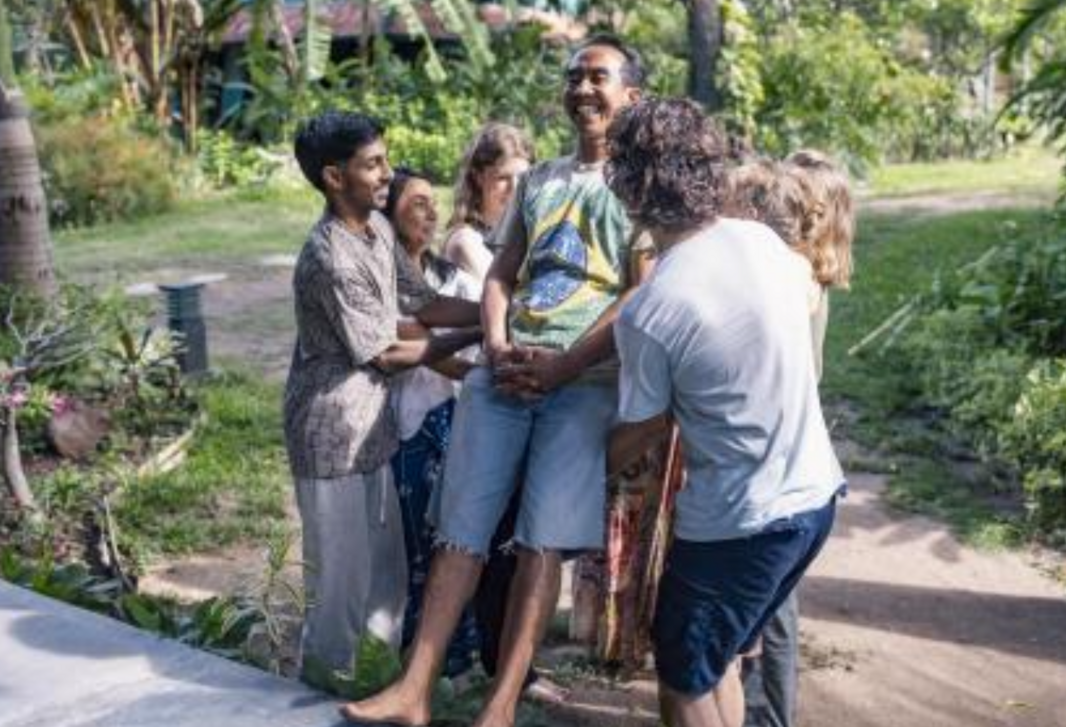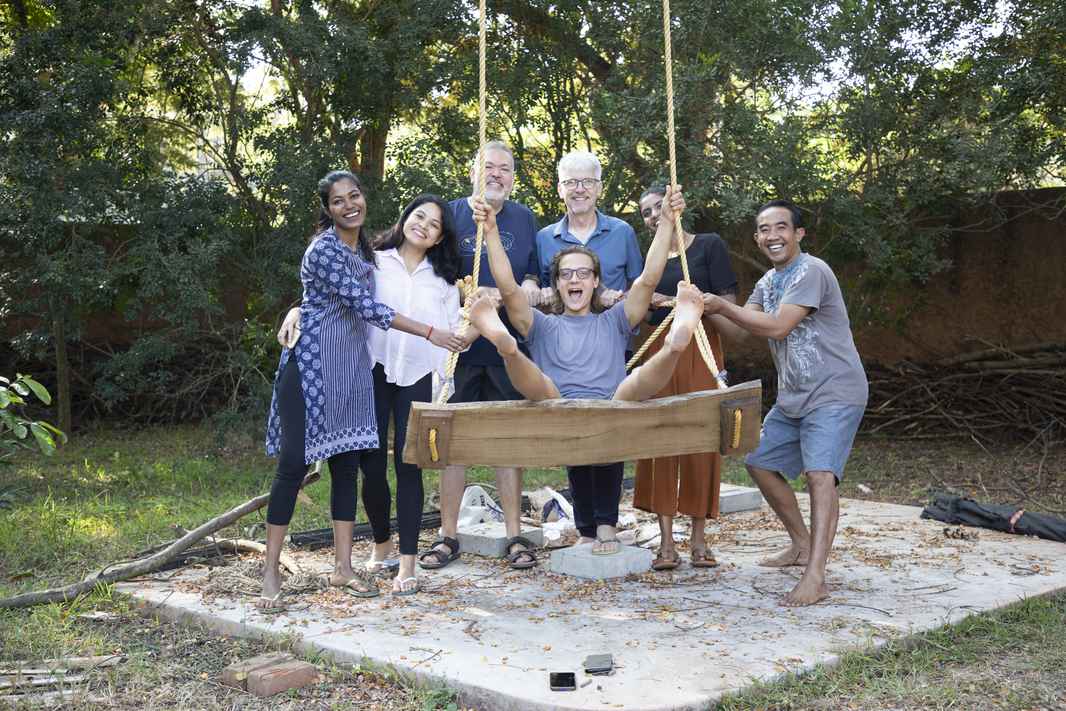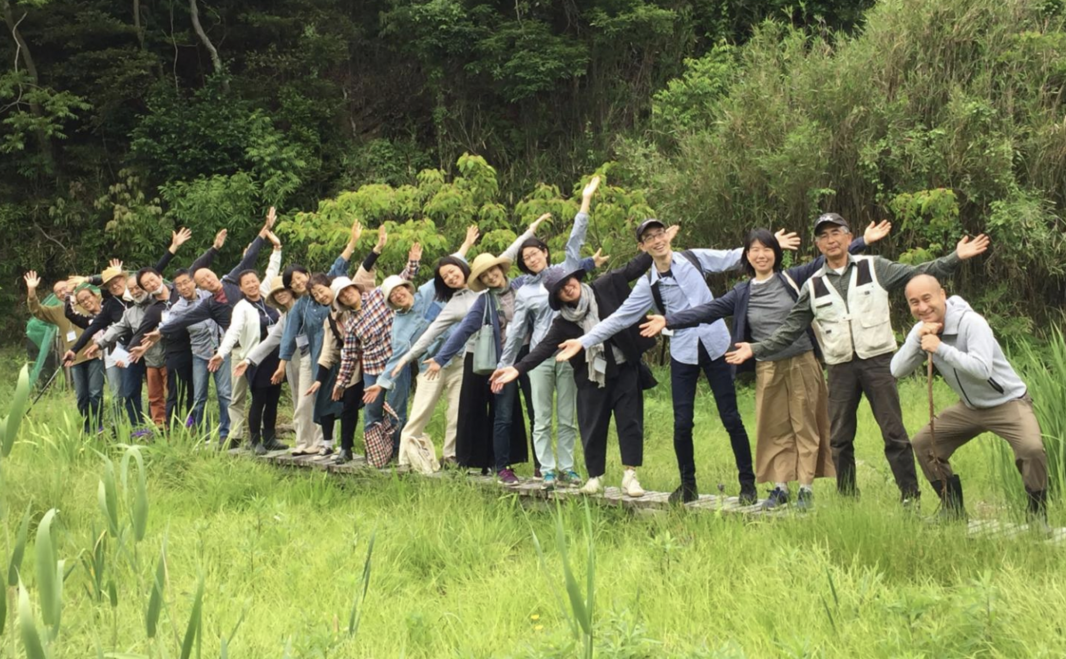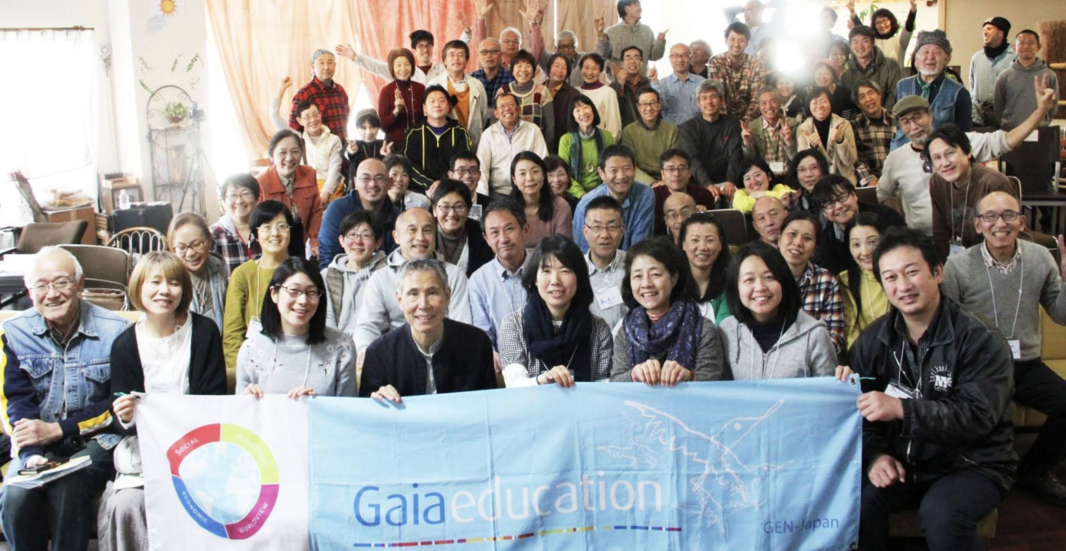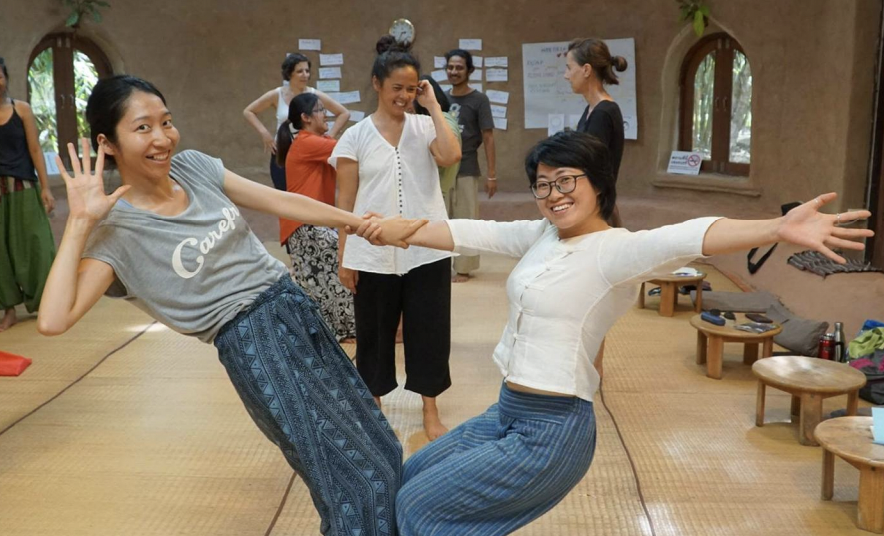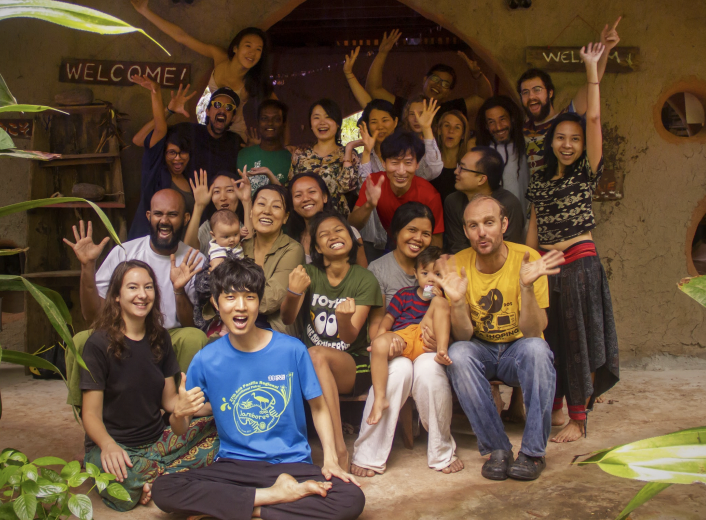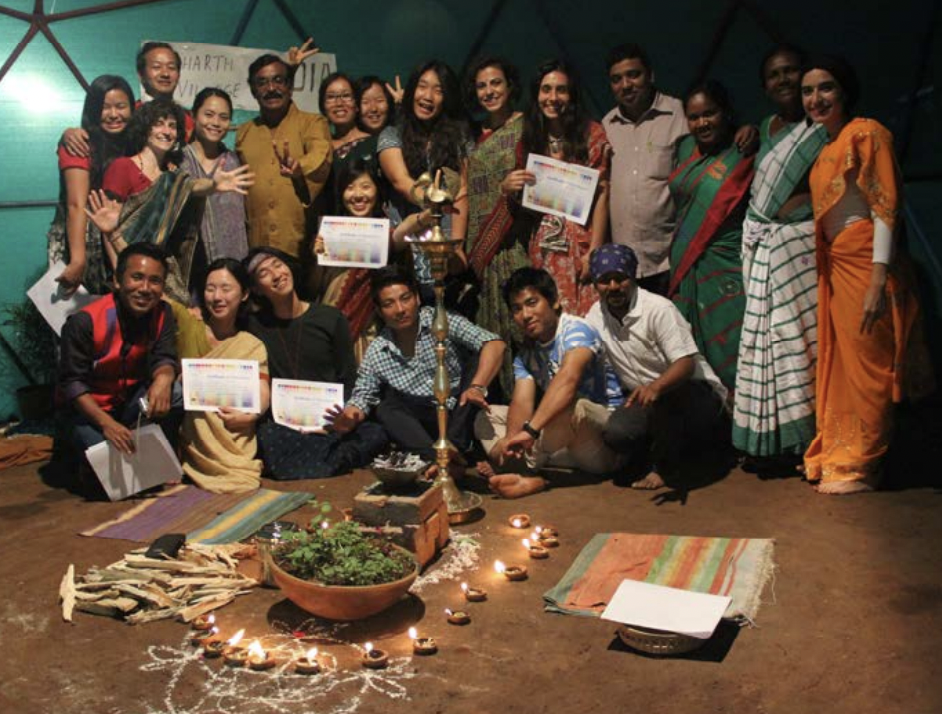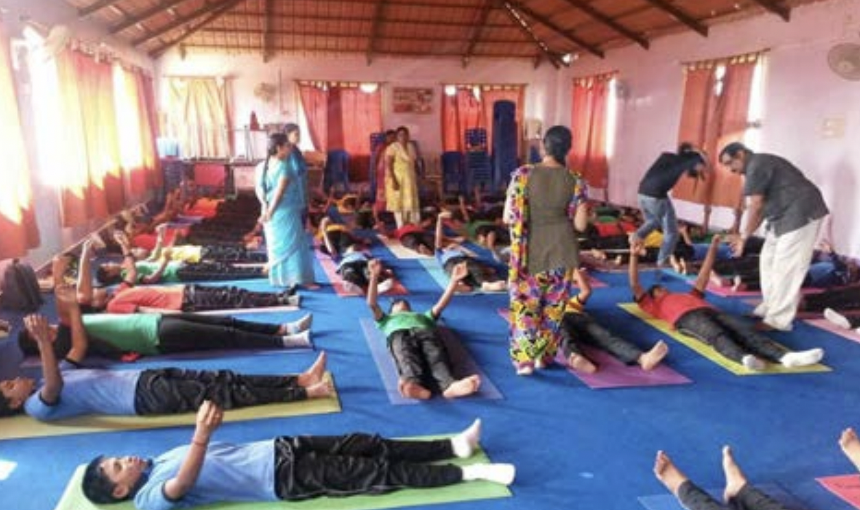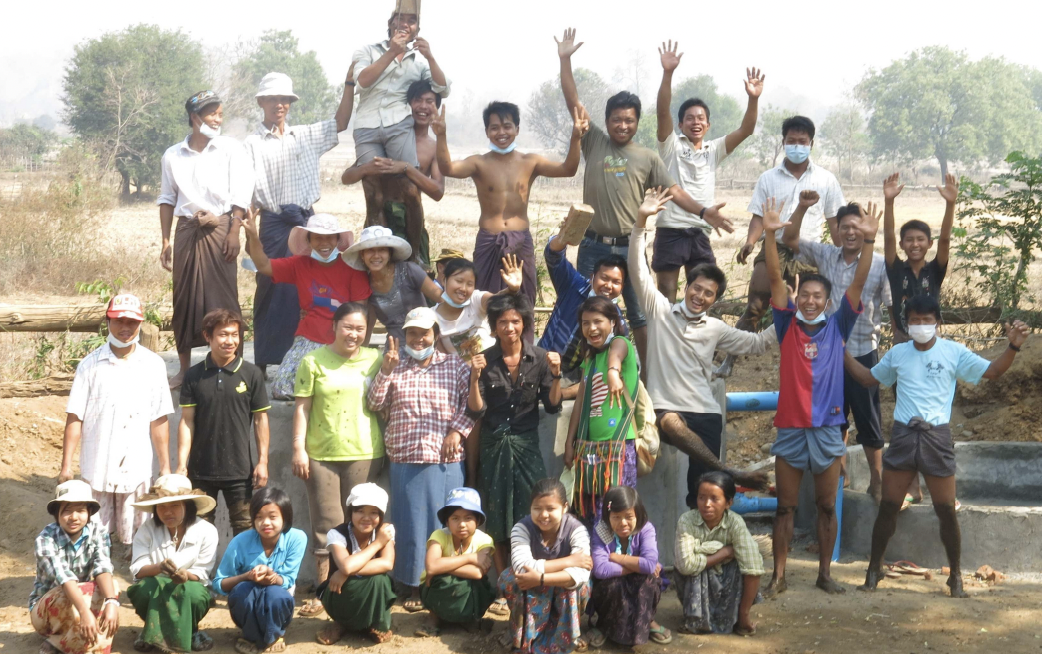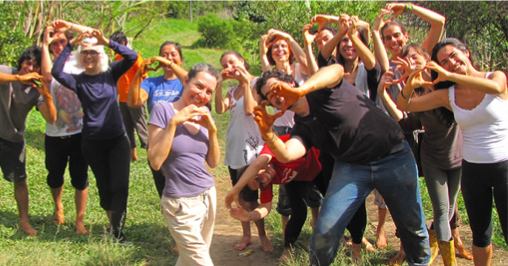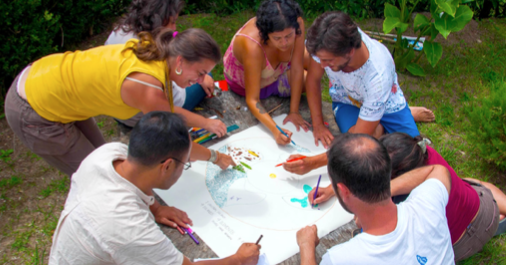EDE Report: Bali
Alaya Ecolodge Bali, Indonesia 2024
This EDE provided an opportunity to learn from the Alaya Ecolodge model, and also participate in applied design for the future projects of Conscious Collective within the North-West Bali region. The aim of this program was to engage local participants from Bali and Indonesia in the design and follow- up of these projects, while simultaneously engaging international participants to learn from and support the process. This EDE marked the end of the 1st year of Alaya Ecolodge’s reopening post-covid 4 year closure. Thus it played a key role in evaluating the 2024 year and planning for the next 2025 and onward. We plan to conduct an EDE annually in order to continue to engage participants in the design of Alaya Ecolodge and its bioregional projects under the umbrella of “Conscious Collective.” We hope that by 2026 we can host Gaia Teacher Trainings as well.
EDE Report: Auroville
India 2023
The course was designed over four weeks from Monday to Saturday. Generally, the day was broken up into morning sessions of three hours in our main hall, with theory or some form of cognitive content, focusing on the “head”. Three hours in the afternoon were dedicated to hands-on activities and visits to different projects and sites in Auroville that embody the Ecovillage Design principles. For one hour and a half on Tuesday - Friday early mornings, we offered a variety of Worldview Introspective sessions and somatic experiences in- and outdoor, so that we could start our day with opening our “heart”. Weekly, we also had a slot for movie night, and one for other activities such as music jam, potluck, Deep Sharing, or Gratitude Circle. We also set enough time aside in the mornings and afternoons for breaks, collective cleaning, and spontaneous activities such as outdoor activities, dance and games.
EDE Report: GEN Japan
JAPAN 2022
The program is based on two pillows both of 4 dimension holistic learning and the communication of exploration, which is taking place consistently throughout the program. For regenerative communication capability is essential to become a can-do person as a change maker. Lecturers were supportive to show practical models and activities for them. Staffs were all graduates from the past GEN-Japan EDE who understood enough well to create and hold the safe platform for participants to open their heart relaxingly.
JAPAN 2019
GEN-Japan believes that it is the basis for achieving the regenerative society to create such local communities and their network, as everyone can live their lives with true heart. And so the main target of Gen-Japan’s EDE is to get to learn sustainable human relationship based on the conversation from the heart. Participants could experience that at a show-case community, As One network Suzuka Community and then realize how important such social environment is!
Healthy Society makes our inside healthy. Inside issues are caused by outside circumstances. Participants were encouraged how they can build healthy relationship among people. They could get confidence to learn more on 4 dimensions, both in visible and invisible contents. Here was the new networking created.
EDE Report: Awakening Leadership Training
Thailand 2019
This Advanced EDE was part of the third Awakening Leadership Training, a collaborative effort which took place from 2nd September 2018 – 25 February, 2019 (plus Gaia Education TOT from 27 Feb-13th March 2019) in Thailand. The EDE framework was integrated into this programme which expanded modules of learning with increased emphasis on self-cultivation and social transformation
EDE Report: NextGENOA
Thailand 2018
EDE Report: Siddharth Village
India 2016
Siddharth Village EDE led by THREAD, guided a group of international participants in an intense self-discovery process while providing a variety of hands-on activities. In the Ecological Design week participants were introduced to permaculture ethics and principles, nutrition cycle, food security, seed saving, water harvesting, soil composition, nature’s patterns and zoning. Students learned how to make biochar to add moisture to dry soils and how to apply different types of compost such as liquid manure, fish tonic and compost pile to improve production and repel insects. Participants were introduced to traditional methods of mud brick construction and built two domes as a space for celebrations and community sharing.
Basics Design Education, India: Annual Report
India 2015-2016
Back to Basics Design Education course, a pilot project first started in India, began at Siddharth Village School in 2014. The most recent BBDE included 59 students and emphasised experimential learning. The programme enables children to face different situations particularly during teenage years and prepares them for future challenges. This report gives an account of the programmes running between 16 June 2015 and 31 March 2016.
Download the final report here
EDE report: Myanmar
Myanmar 2014
This course was intended to be an experimental programme to promote sustainable living in the fields of organic food production, holistic health, building green, conflict facilitation, communication and networking, and sustainable economy in Myanmar society. The EDE introductory course was organised by Alinein Organisation (House of Wisdom) at Hmawbi Township. The teaching team were from Gaia Sustainable Management Institute (GSMI), and the exchange programme was held by the Kalyana Mitta Foundation. The course had 19 participants in total (6 females, 13 males) coming from different parts of Myanmar, and the majority were from the middle section of the country – Hmawbi Township, Yangon Division.
What is an EDE (Ecovillage Design Education programme)?
Ecovillage Design Education programmes, often referred to as ‘EDEs’, take place in 50 countries in settings ranging from tribal and traditional communities to intentional ecovillages, from urban slum to universities and training centres. The duration of these programmes are around 125 hours over a full month, although this may vary slightly depending on where and when they are taken. The EDEs provide participants of all ages with the knowledge and practical skills to design a society which uses energy and materials with greater efficiency, distributes wealth fairly and strives to eliminate the concept of waste.
How to run an EDE
Several of our EDE graduates have carried on organising EDE programmes in their local areas, and you are warmly encouraged to do so after completing your course.
The recommended time frame of an EDE is four weeks, however this is not fixed and varies with each individual programme.
The material can be condensed into smaller workshops, spread out over a longer period, or distributed in blocks at different times and locations.


